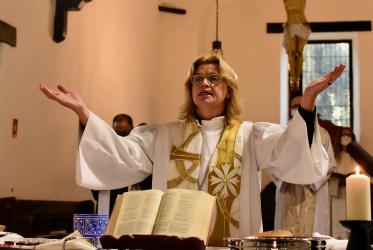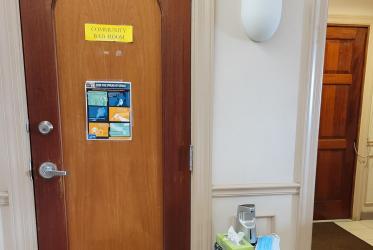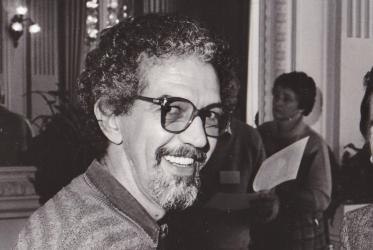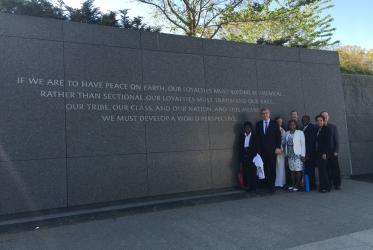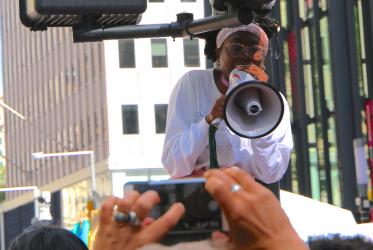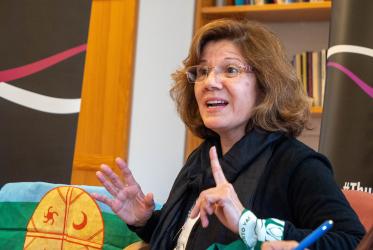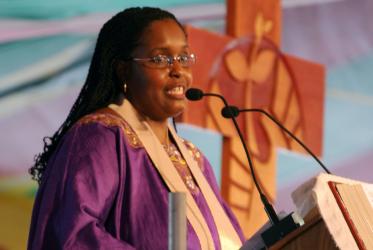Displaying 1 - 20 of 73
WCC at peace dialogue table with UN Security Council in Colombia
15 February 2024
In Chile, “Churches’ ministry of reconciliation is key”
29 November 2022
“Bathroom ministry” for the homeless
14 December 2021
“Women must keep resisting,” urges Chilean theologian
10 March 2020
American and Swedish church leaders sign joint climate justice pledge
26 September 2019
Dr Saïd Ailabouni: God is on the side of rejected, oppressed, occupied
12 September 2019
WCC pressing ahead with disarmament work
28 August 2019
Latest gun violence in US poses challenges for churches
05 August 2019
Funeral celebrates life of Rev. Robina Winbush
26 March 2019




